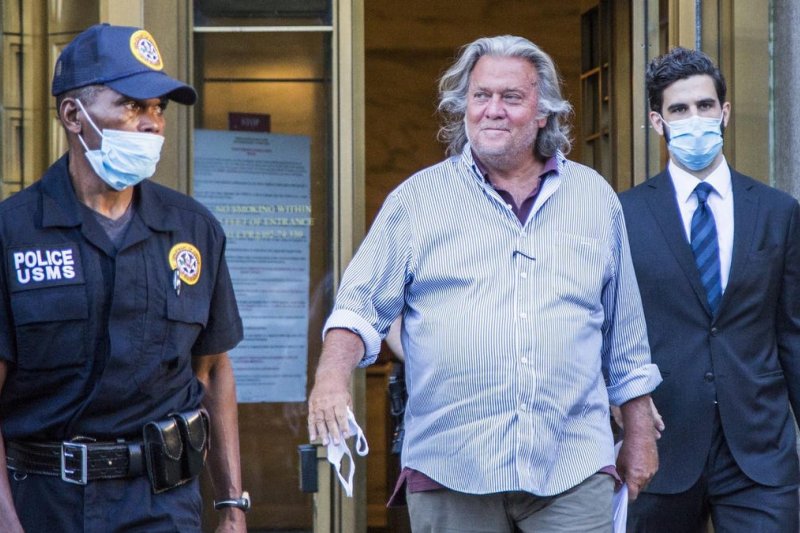Donald Trump’s Top Former Strategist Jailed Four Months
Donald Trump’s top former strategist Steve Bannon was sentenced Friday to four months in federal prison and $6,500 in fines after he was convicted with criminal contempt of Congress for refusing to comply last year with a subpoena issued by the House January 6 select committee.
The punishment – suspended pending appeal – makes Bannon the first person to be incarcerated for contempt of Congress in more than half a century and sets a stringent standard for future contempt cases referred to the justice department by the select committee investigating the Capitol attack.
The sentence handed down by the US district court judge Carl Nichols in Washington was lighter than recommended by prosecutors, who sought six months in jail and the maximum $200,000 in fines because Bannon refused to cooperate with court officials’ pre-sentencing inquiries.
Bannon, 68, had asked the court for leniency and requested in court filings for his sentence to either be halted pending the appeal his lawyers filed briefs with the DC circuit court on Thursday or otherwise have the jail term reduced to home-confinement.
But Nichols denied Bannon’s requests, saying he agreed with the justice department about the seriousness of his offense and noting that he had failed to show any remorse and was yet to demonstrate that he had any intention to comply with the subpoena.
The far-right provocateur now faces a battle to overturn the conviction on appeal, which, the Guardian first reported, will contend the precedent that prevented his lawyers from disputing the definition of “wilful default” of a subpoena, and arguing he had acted on the advice of his lawyers, was inapplicable.
Bannon was charged with two counts of contempt Congress after his refusal to comply at all with the select committee’s subpoena demanding documents and testimony last year triggered the House of Representatives to refer him to the justice department for prosecution.
The select committee had sought Bannon’s cooperation after it identified him early on in the investigation as a key player in the run-up to the Capitol attack, who appeared to have advance knowledge of Trump’s efforts to stop the certification of Joe Biden’s election win on January 6.
Among other moments of interest, the Guardian has previously reported, Bannon received a call from Trump the night before the Capitol attack while he was at a Trump “war room” at the Willard hotel and was told of then-vice president Mike Pence’s resistance to decertifying Biden’s win.
The close contacts with Trump in the days and hours leading up to the Capitol attack meant Bannon was among the first targets of the investigation, and his refusal to comply with the subpoena galvanised the panel’s resolve to make an example of him with a contempt referral.
During the five-day trial in July, Bannon’s legal team ultimately declined to present evidence after Nichols excluded the “advice of counsel” argument because the case law at the DC Circuit level, Licavoli v United States 1961, held that was not a valid defense for defying a subpoena.
The justice department, according to Licavoli, had to prove beyond a reasonable doubt that Bannon’s refusal to comply was deliberate and intentional, and the assistant US attorney Amanda Vaughn told the jury in closing arguments they should find the case straightforward.
“The defense wants to make this hard, difficult and confusing,” Vaughn said in federal court in Washington. “This is not difficult. This is not hard. There were only two witnesses because it’s as simple as it seems.”
That meant the only arguments left available to Bannon were either that he was somehow confused about the deadlines indicated on the subpoena, or that he did not realize the deadlines were concrete and failing to comply with those dates would mean he was in default.
(Source: The Guardian)














